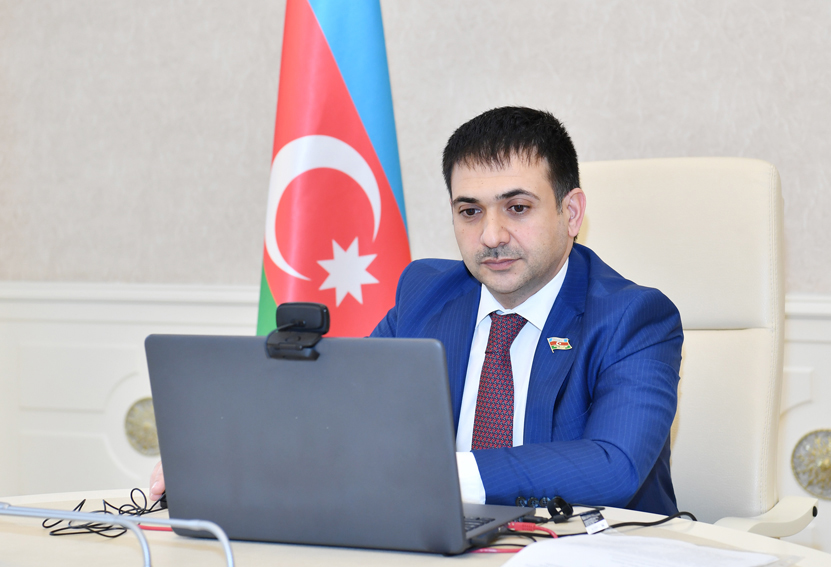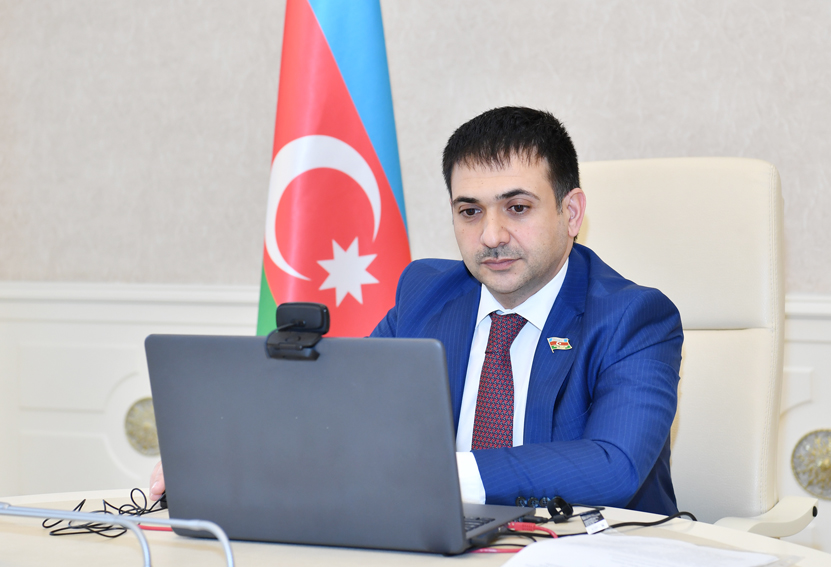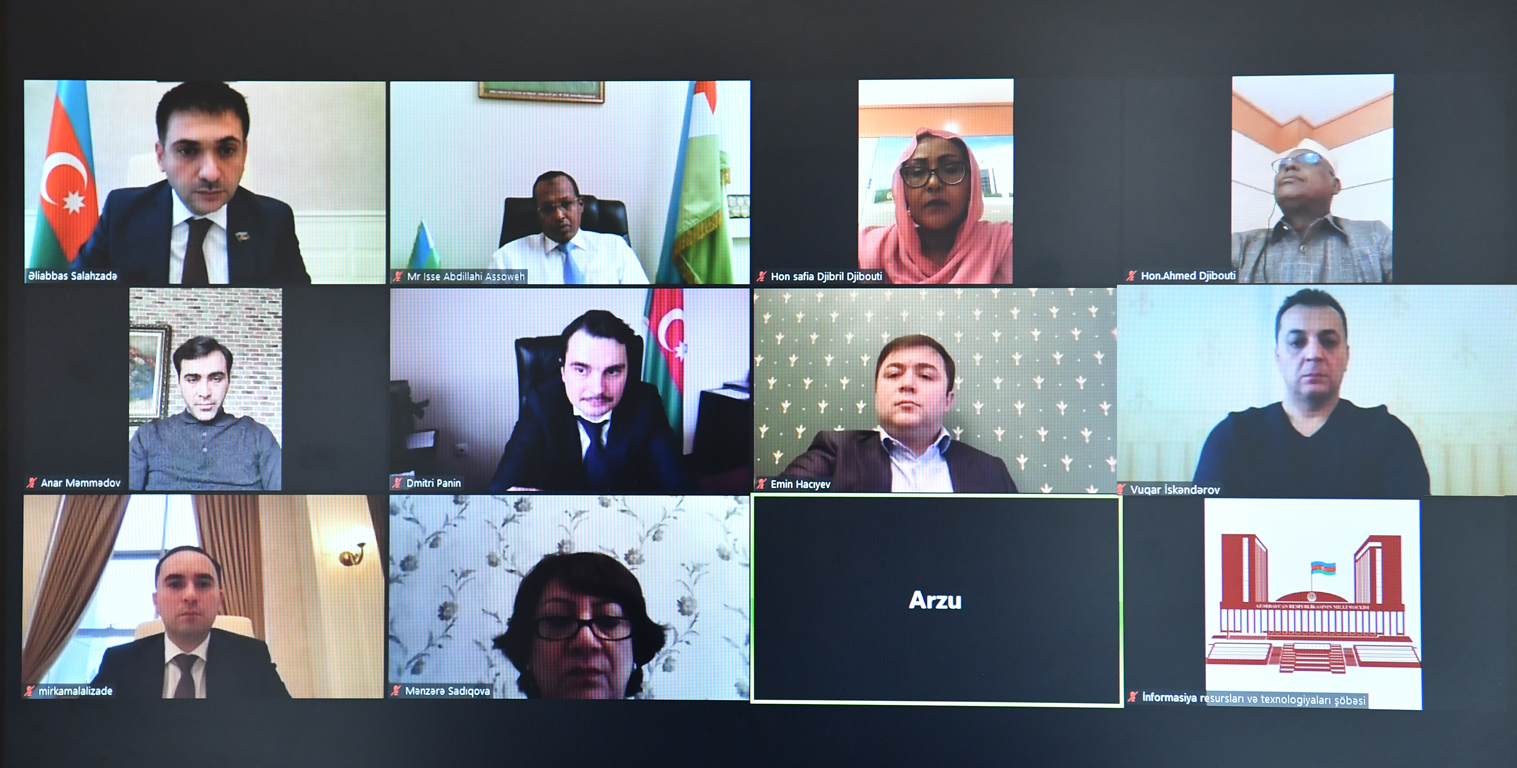Djibouti MPs Commemorated Khojali Genocide

A videoconference on the 29th anniversary of the Khojali Genocide was held together with the National Assembly of the Republic of Djibouti on 21 February on the initiative of the Milli Majlis Working Group for the interparliamentary contacts between the two countries. Representatives of the Azerbaijani Embassy in Ethiopia also accredited in Djibouti and of the Djiboutian Embassy in Moscow joined the event as well.
Leader of the Milli Majlis Working Group for the interparliamentary contacts between Azerbaijan and Djibouti Aliabbas Salahzade welcomed the participants of the online meeting and told the Djiboutian ones that the genocide in Khojali was the cruellest instance of the occupation and terror that Armenia had unleashed against Azerbaijan during 1988-1993. That occurrence remains bloodcurdling even now, he added. On 26 February 1992, the Armenian armed forces captured the town of Khojali situated in the Highland Garabagh region of Azerbaijan and massacred its civilian population. The armed aggression resulted in the atrocious killing of 613 civilians including 106 women, 63 children and 70 aged people; 8 families were wiped out completely; 25 children lost both parents and 130 one each. Besides, 487 townsfolk were injured and there is no information about the fate of 150 out of the 1,275 people who were seized as hostages – those 150 are reported missing still.
Mr Salahzade went further to mention the resolution that the National Assembly of the Republic of Djibouti passed on 11 January 2017 to express a fair legal and political assessment of the Khojali Genocide. He underscored the role that that document had played in the efforts being made to achieve the genocide’s recognition by the global community and voiced profound gratitude to Djibouti for it. The people of Azerbaijan appreciate very much the sensitive response of the Djiboutian Parliament to the Khojali Genocide as one of the most appalling crimes against humanity ever committed.
Speaking then of the growing role of parliamentary diplomacy in the system of modern international relations, Mr Salahzade noted that the importance of the resolution by the Djiboutian Parliament was also in that it had added a parliamentary dimension to the question of the Khojali Genocide’s recognition.
The Djiboutian MPs were told that the occupation encroachments of Armenia against Azerbaijan were cut short on 10 November 2020 when our adamantine Army led by President and Commander-in-Chief Ilham Aliyev capped the 44-day Patriotic War with a brilliant victory. Azerbaijan attained a historic triumph and made its national territory whole again. A new reality has settled in the region since. Restoration and rebuilding work goes on in the liberated territories.
Our MP spoke of the role of the Islamic religion in the forming of the common spiritual and moral values. Then, he said that our historical heritage, our cultural and religious monuments and sites in the lands held in captivity for almost 30 years had been vandalised by Armenia.
Mr Salahzade witnessed his readiness as a leader of the appropriate working group for co-operation aiming to deepen the parliamentary relations between Azerbaijan and Djibouti.
The Leader of the Djiboutian Parliament’s Working Group for friendship with Azerbaijan Mrs Safia Elmi Djibril who was attending the videoconference passed on the greetings of the President, Speaker and all the Members of the National Assembly to the Azerbaijani colleagues. The Republic of Djibouti supports Azerbaijan in the parliamentary as well as the state contexts; it is always right beside Azerbaijan both as a country and as a nation, Mrs Djibril emphasised.
‘We congratulate you on the victory in the 44-day Patriotic War, we ask that Allah rest the shahid souls in peace and we are extremely glad that Azerbaijan restored its territorial integrity,’ Mrs Djibril added.
Member of the Djiboutian National Assembly Ahmad Hassan Muhammad spoke of his country’s solidarity with Azerbaijan and of the National Assembly’s 2017 resolution on the Khojali Genocide. He said that the Djiboutian people thought of Azerbaijan all the time during the 44-day Patriotic War, could imagine vividly the sacrifices being made at the victory’s altar and were happy to learn that Azerbaijan had regained territorial integrity. Having recalled his previous visit to Baku, Mr Muhammad said Azerbaijan had unfolded before his eyes as an exemplary country.
Another member of the National Assembly, Abdullah Barkat Ibrahim, voiced the desire of Djibouti to strengthen our ties further and to broaden yet more the co-operation, saying then that the related prospects were considerable.
The participants of the meeting spoke of the difficulties caused by the pandemic, the global economic damage dealt, the human lives lost and the importance for countries to combine efforts to fight COVID-19. They shared the conviction of the usefulness of exchanging experience between our countries. Mutual invitations sounded. The Azerbaijani side were thanked for the transport backing given to Djibouti.
The members of the Milli Majlis Vugar Iskenderov, Anar Mammadov and Emin Hajiyev brought up a number of important matters. They talked about the bilateral comprehensive co-operation growth prospects, our ties in the Non-Aligned Movement and the importance of intensifying two-way visits once the pandemic was over. The meeting participants agreed on the usefulness of broader co-operation between the port of Baku and the port of Djibouti that commands strategic importance in Africa. They also agreed that bilateral co-operation in various areas including, say, agriculture was useful as well.
The Djiboutian MPs were told that the Azerbaijani side would like Djibouti to join the campaign ‘Justice for Khojali!’ ran in many countries on the 26th of February every year as well as to support it.
There was also an exchange of opinions about several subjects interesting both sides during the videoconference.
The Press and Public Relations Department
The Milli Majlis





